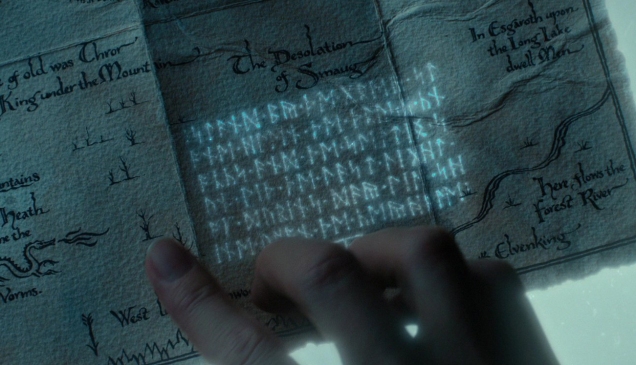Welcome to a brand new series imaginatively entitled ‘The Bestiary’. In said series, we’re going to be looking at fantasy races and creatures and documenting them as if we’re some sort of fantasy David Attenborough. Why are halflings so short? Do dragons ever get burnt tongues? How many ogres does it take to change a light bulb? I’ll offer you my theories and thoughts alongside a great big slice of hard scientific evidence and fact.
Ok, maybe not scientific fact. More like fantatific fact. Or is that just facts about orange-flavour fizzy drinks? Hmm…
* * *

Ukrug gar bethk u skog!
That means ‘Good day, my fine fellow. How is the weather?’ in Orcish. Or does it? In fact, I just made that up. Here’s a ‘proper’ orc phrase from Mr. Tolkien:
Uglúk u bagronk sha pushdug Saruman-glob búbhosh skai!
Which (roughly) means: ‘Uglúk to the dung-pit with stinking Saruman-filth, pig-guts, gah!’
Aren’t orcs just a bunch of lovely individuals?
No? OK, fair enough. But they are a race with a long and varied history, complete with their own language and intricate tribal customs. That depends on what particular type of orc you’re talking about, of course. If we’re talking Warcraft, then you’ll find orc shamans, orc cities and even orc diplomacy. If you’re talking Warhammer, then you’ll be lucky if you can get so much as a ‘WAAAGGGGHHHHHH!!!!!’ out of your average orc as it picks its nose and eats mud soup from a human skull.
Orcs are curious creatures, then. Humanoid, but not human. Sometimes they’re depicted as an ancestor or offshoot of the human race; other times they’re sentient globs of green space phlegm and others they are corrupt versions of elves. This makes determining just what the heck they are supposed to be a little tricky. Personally, I always consider them a distant ancestor of humankind, kind of like Neanderthals or something. Just don’t ask me to explain the green skin and tusks (maybe they cross-bred with diseased mammoths at some point, who knows?).

Now, again, depending on which universe you’re talking about, orcs use a variety of different weapons and ride a variety of different creatures into battle. Tolkien probably did it best by showing us the relationship between the wargs and orcs of Middle-earth and then it was only another short leap of imagination for us to believe that the orcs then rode those same wargs as humans rode horses. In other works of fiction, orcs ride all manner of beasts, from gigantic wolves and wild boars to plain old horses and sometimes even more exotic creatures.
Just check out a game series like the Elder Scrolls (or any traditional fantasy RPG) and you’re sure to find an orc blacksmith or two. Orcs love fighting and they love weapons, so why do orc-crafted weapons always look so damn crude and ugly? If they just took a little more time and effort… well, you get the idea.
Hmm, hold on one second…
- Enjoys fighting
- Loves pointy/bashy weaponry
- Often unintelligible
Remind you of anyone else? Yep, you guessed it… dwarves.
And that segues nicely into our introduction for the next instalment of ‘The Bestiary’!
The mountain slopes are alive with the sound of feasting, of drinking… and of war! Secreted safely away in their subterranean strongholds, the dwarves have many foes but fear none. They may be short, but they’re ferocious fighters. And whatever you do don’t tug a dwarf’s beard! And never, under any circumstances, stroll into town and proclaim: ‘Yo! Where the women at?’
Some things are better left uncovered.
Got anything to say about orcs? How about an interesting fact? Oh, do share!






